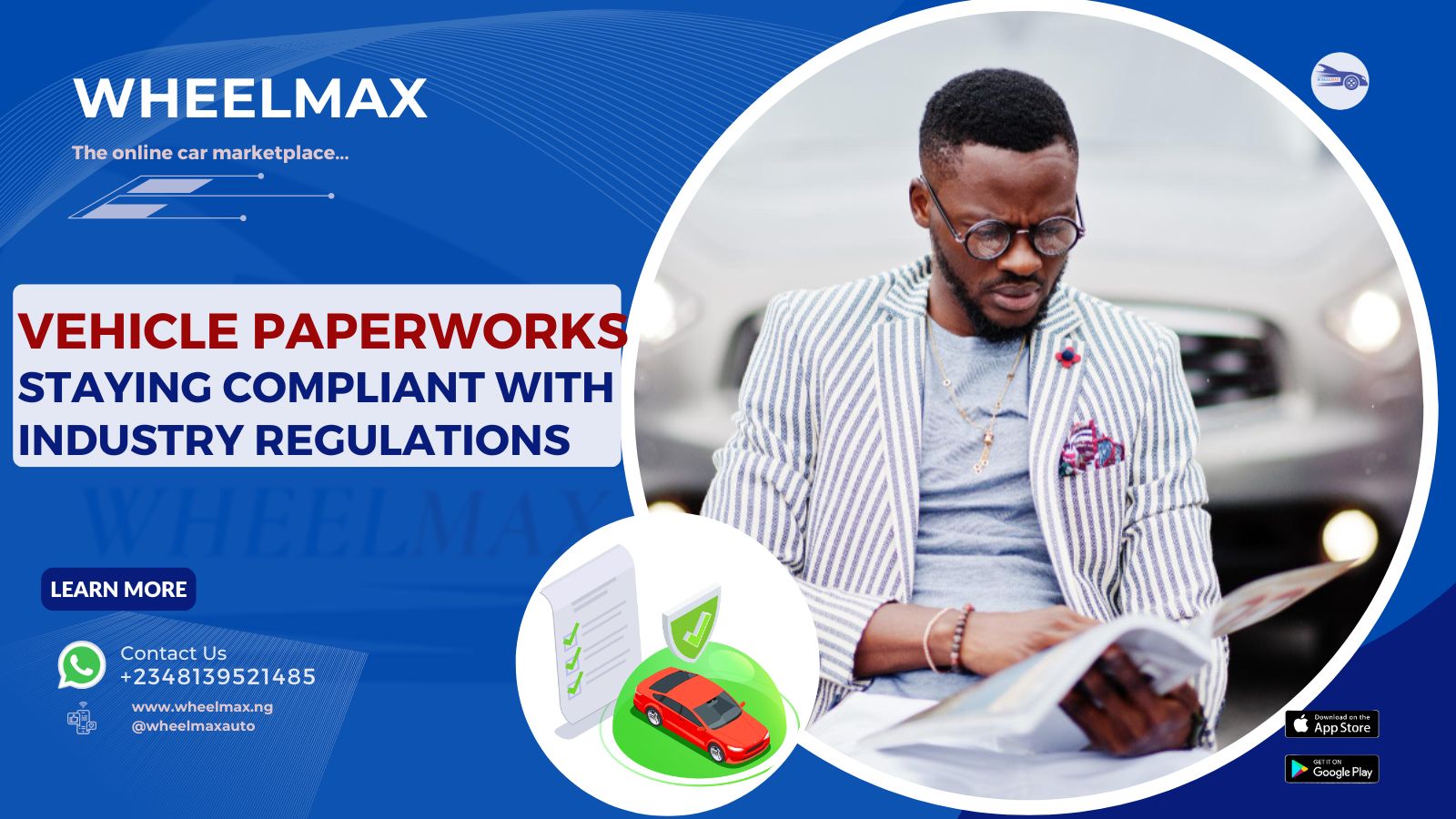Staying Compliant with Industry Regulations and Laws in Nigeria's Auto Market
In the dynamic Nigerian auto market, a great deal is built on more than just a good price and a quality car. It’s built on a foundation of trust, and that trust is cemented by adhering to the established regulations and laws. Navigating these rules isn't about dealing with "red tape"; it's about protecting yourself, your business, and your customers.
For sellers, compliance is a powerful signal of credibility. It tells buyers that you are a professional who operates with integrity. For buyers, understanding these regulations is your best defense against fraud and future legal headaches.
At WheelMax, we are committed to fostering a safe and compliant marketplace. This guide will walk you through the essential legal procedures, paperwork, and ethical standards that every participant in the auto market must uphold.
1. The Paperwork: Your Legal Proof of a Legitimate Deal
Correct and complete documentation is the absolute, non-negotiable bedrock of any vehicle sale. These documents are not just formalities; they are your legal proof of ownership, importation, and the right to operate the vehicle on Nigerian roads.
The Essential Checklist:
- Proof of Ownership: This is the primary document verifying the legal owner of the vehicle.
- Customs Duty Certificate (for "Tokunbo" cars): This is arguably the most critical document for any foreign-used vehicle. It proves that the necessary import taxes have been paid. A car without verified customs papers is a significant legal and financial risk.
- Vehicle License and Registration: Confirms the car is officially registered in the national vehicle database.
- Certificate of Roadworthiness: Certifies that the vehicle has passed a safety inspection by the VIO.
- Valid Insurance Papers: At a minimum, third-party insurance is required by law.
Why it Matters: As a seller, presenting a complete and verifiable set of these documents builds instant trust. As a buyer, insisting on seeing and verifying every single one is your due diligence to ensure you are not buying a stolen or illegally imported vehicle.
2. Legal Procedures: Closing the Loop on a Sale
A vehicle transaction is not complete when the money is exchanged. It is only complete when the legal transfer of ownership has been finalized. Skipping this step is one of the biggest mistakes a seller can make.
The Change of Ownership Process:
This is the formal process of notifying the vehicle licensing authorities that the car has a new owner.
- Why it's Crucial for Sellers: Until the ownership is officially transferred, you are still legally linked to that vehicle. If the new owner incurs traffic fines, uses the car for illegal activities, or is involved in an accident, you could be held liable. Completing the Change of Ownership process is your legal protection. It formally transfers all responsibility to the buyer.
- Why it's Crucial for Buyers: This process provides you with new documents in your name, giving you undisputed legal ownership. This is essential for insurance purposes, future renewals, and your ability to sell the car later on.
Following the correct legal procedure isn't optional; it's a fundamental part of a secure transaction that protects both parties.
3. Ethics: The Unwritten Law of Good Business
Beyond the specific regulations set by the government, there are the unwritten laws of ethical conduct. In the long run, your reputation is your most valuable asset, and it is built on a foundation of honesty.
- Truth in Advertising: Your vehicle description must be accurate. Misrepresenting the mileage, condition, or features of a car is not just unethical; it can be considered fraudulent.
- Full Disclosure: Always be upfront about the vehicle's history and any known issues. An honest seller who discloses a minor, repaired issue is far more trustworthy than one who tries to hide it.
- Fair Dealings: Your pricing should be transparent, and all agreements should be honored.
Operating ethically builds a loyal customer base and a stellar reputation that no amount of advertising can buy.
At WheelMax, we champion these standards. We encourage all our users—both buyers and sellers—to prioritize compliance and ethical conduct. By doing so, we not only ensure that individual transactions are safe but also contribute to building a more transparent, professional, and trustworthy auto market for everyone.
